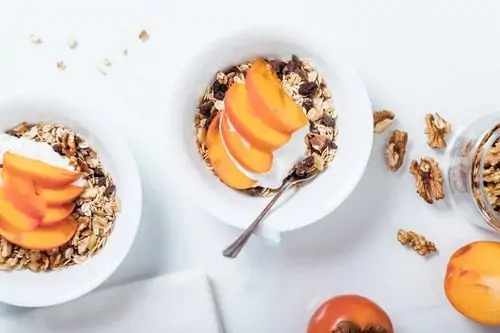
Sugar is a preservative, so it can be found in many of our favorite foods and drinks. The problem with this is that sugar can cause tooth decay when we consume it over a long period of time. In fact, according to the ADA (American Dental Association), one-quarter of adults have some form of tooth decay. Your dentist in Mt. Pleasant looked into the sugar content in popular foods and drinks so you know how much sugar you’re consuming in your diet on a daily basis.
Soft Drinks
Soft drinks contain so much sugar that your Mt. Pleasant dentist recommends limiting them to one 12-ounce can per day. Many soft drinks contain 26 grams of sugar or more per 12-ounce serving, which is almost six times more than what dentists recommend. Aside from cavities and loss of enamel, too much sugar has been linked to increased chances of obesity and diabetes among children.
Fruit Juices
Fruit juice has been found to contain large amounts of natural sugars like fructose, which can cause cavities when consumed excessively. For example, orange juice averages 7 teaspoons of sugar per cup, grapefruit juice averages about 3 teaspoons, and apple and cranberry juices average 2-3 teaspoons each. Dentists advise limiting fruit juice intake to 6 ounces each day for children aged 4-6 years old, 4 ounces for children aged 7-12 years old, and 3 ounces for adolescents aged 13-18 years old.
BBQ Sauce
A summer favorite for grillmasters everywhere, barbeque sauce is one of those foods that can seem pretty harmless from the surface. After all, it does have tomatoes and vinegar in it. But depending on what kind of barbeque sauce you’re eating, you may be consuming more sugar than you realize. A popular brand has 35 grams of sugar per half-cup serving, and another has 37 grams per half-cup serving.
Frozen Yogurt
If you’re looking for something other than ice cream to cool off with, frozen yogurt might be your best bet. It typically has less sugar than ice cream and it’s often mixed with fruit and nuts for an added crunch. However, frozen yogurt still contains some sugar, so eating too much can lead to cavities just like any other type of dessert. In fact, some frozen yogurts can have as much as 13 teaspoons of sugar per serving. To keep cavity-causing bacteria at bay, try spacing out your consumption of frozen yogurt with other snacks throughout the day to help ensure your teeth stay healthy and cavity-free.
The average person consumes 150 pounds of sugar each year, which means sugar has quickly become America’s number one source of calories. These excess calories are having an adverse effect on dental health, leading to an increased risk for tooth decay and other dental issues. To reduce your risk, see your dentist in Mt. Pleasant every six months.